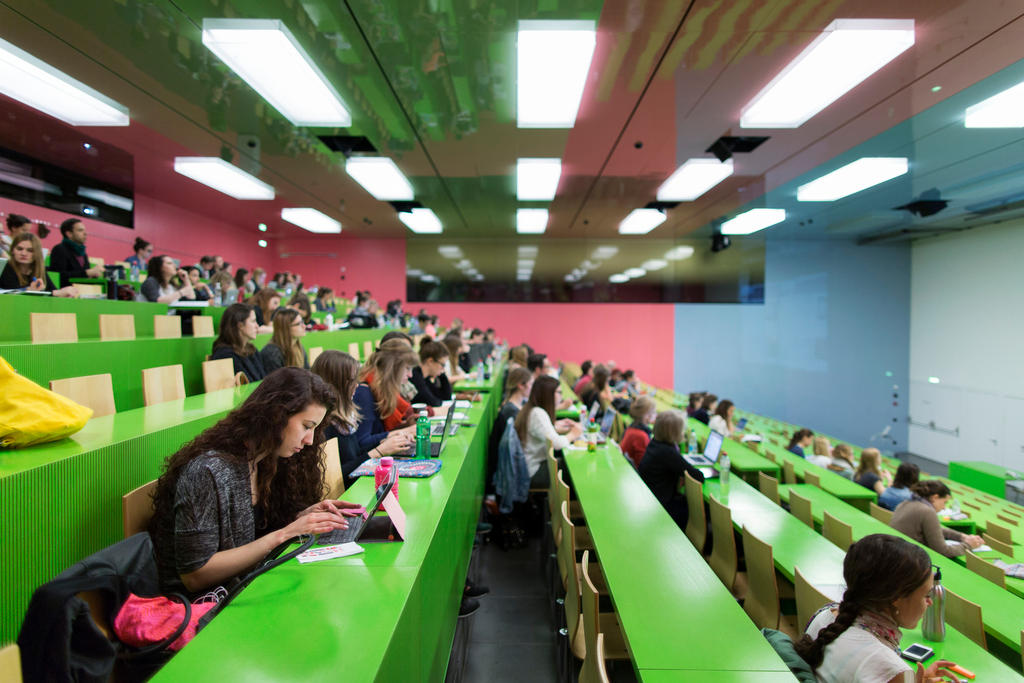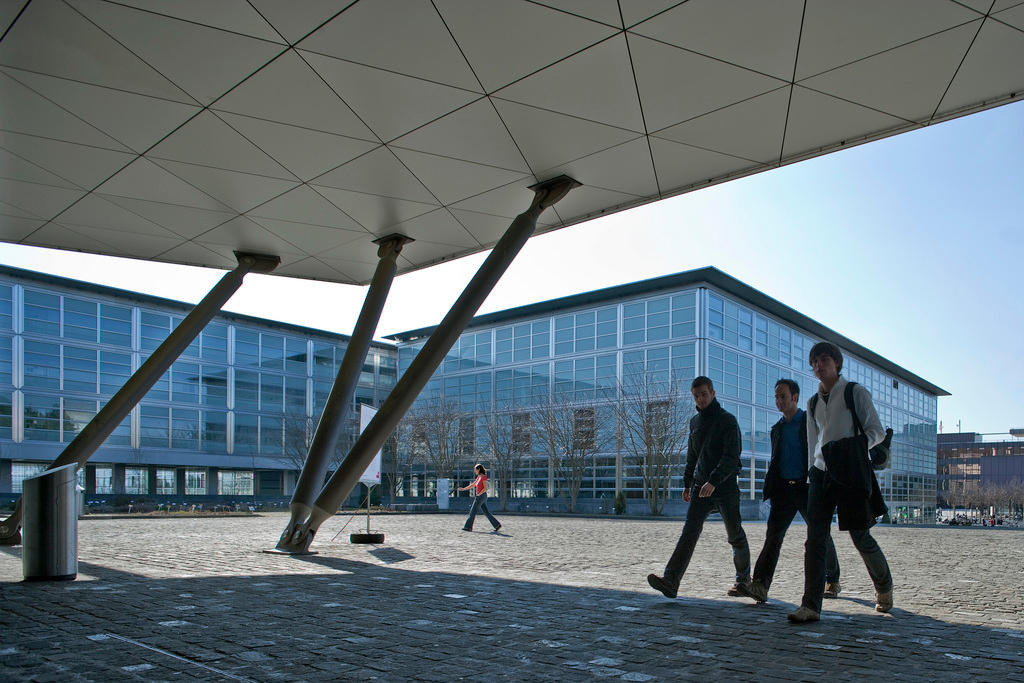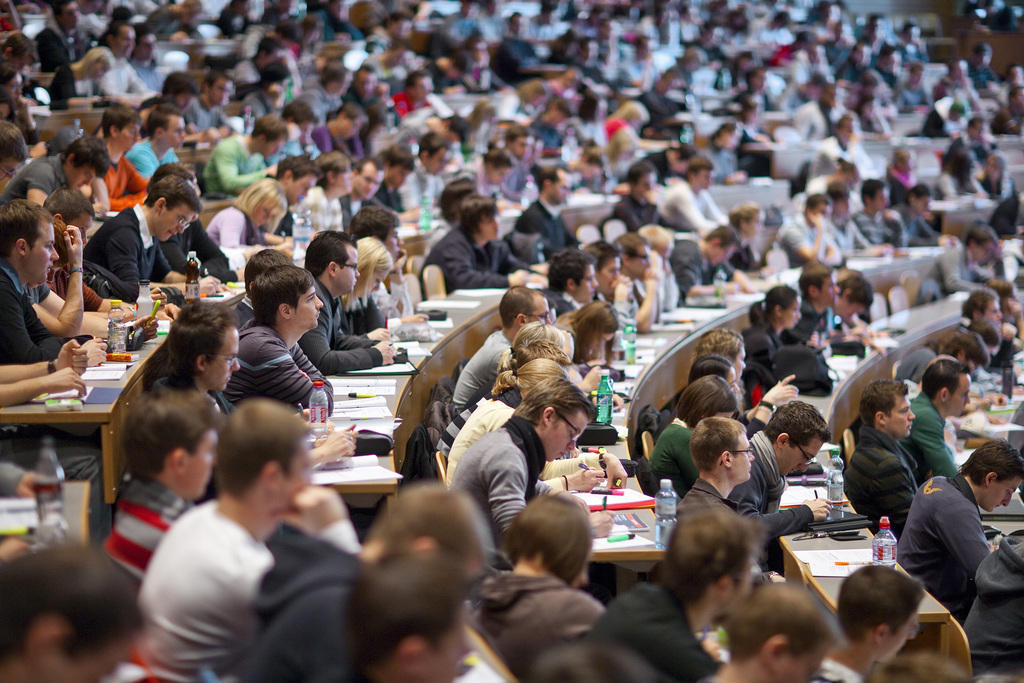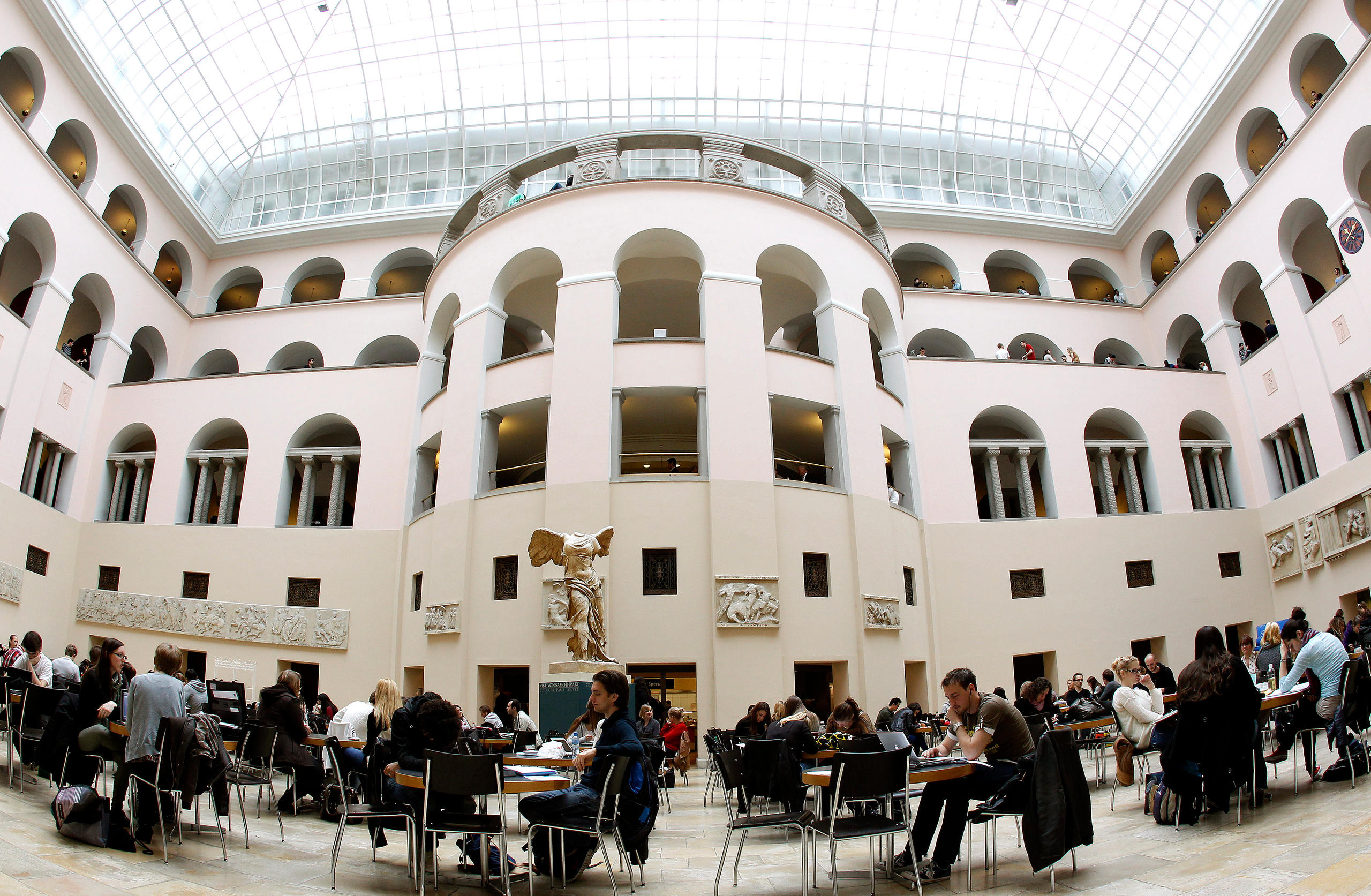Do Swiss universities offer the best value for money?
Here is a meta-analysis by swissinfo.ch that combines the most popular university rankings to find out which ones are best. We also show which university offers the best value for the money. Spoiler: Switzerland, for once, is a good deal.
The public, the media and the universities themselves have all embraced university rankings. They have been remarkably influential even though what they measure is often obscure.
We created a hybrid ranking of the “best” 500 universities by averaging the three longest established and most influential global rankings: QS World University rankingExternal link, Times Higher Education (THE)External link and the Shanghai rankingExternal link (AEWU). The map under shows the location of these 500 best universities.
Little Switzerland punches above its weight with eight universities in the global top 500. The Alpine nation becomes even more competitive when comparing university ranking against tuition fees, as shown in the chart under.
The majority of our consensus top 50 universities are in English-speaking countries, but they are by far also the most expensive.
The Swiss Federal Institute of Technology in Zurich (ETHZ) is ranked 13th on average but costs less than $1,200 per year for a master degree in computer science. It is more than 40 times cheaper than universities with a similar rank such as Yale or Columbia University. Some of the best universities in China, Japan and Germany also provide excellent value for their tuition fees.
For more details about what these rankings measure and their shortcomings, check our analysis about University rankings.
Switzerland is one of the world’s biggest spenders on education per capita and a recent study by a British consulting firm suggests the investment largely pays off. The country’s two Federal Institutes of Technology are estimated to account for 100,000 jobs and CHF13 billion ($13 billion) in added value to the Swiss economy.
The top-tier universities are widely credited for their contribution to Switzerland’s global competitiveness. Last year they concluded more than 500 new cooperation agreements with the private sector, according to a report. They were also the birthplace of 600 spin-offs and on average one patent application was filed every 48 hours in 2017.
Swiss universities are also very international. One in five students in the upper levels of Swiss universities comes from abroad, says a federal report. However, for Master-level and doctorate-level students of applied sciences or arts, this figure jumps even further: to 22% and 52% respectively.
Foreign students are more likely to be found in natural and technical sciences than in the social or educational sciences.
Method
Despite the efforts put in reconciling these three rankings, swissinfo.ch cannot guarantee absolute accuracy and completeness of the data presented. The data shown is intended for general information purposes only.
The full method and results are presented in the following article.

More
A visual summary of university rankings

In compliance with the JTI standards
More: SWI swissinfo.ch certified by the Journalism Trust Initiative





You can find an overview of ongoing debates with our journalists here . Please join us!
If you want to start a conversation about a topic raised in this article or want to report factual errors, email us at english@swissinfo.ch.